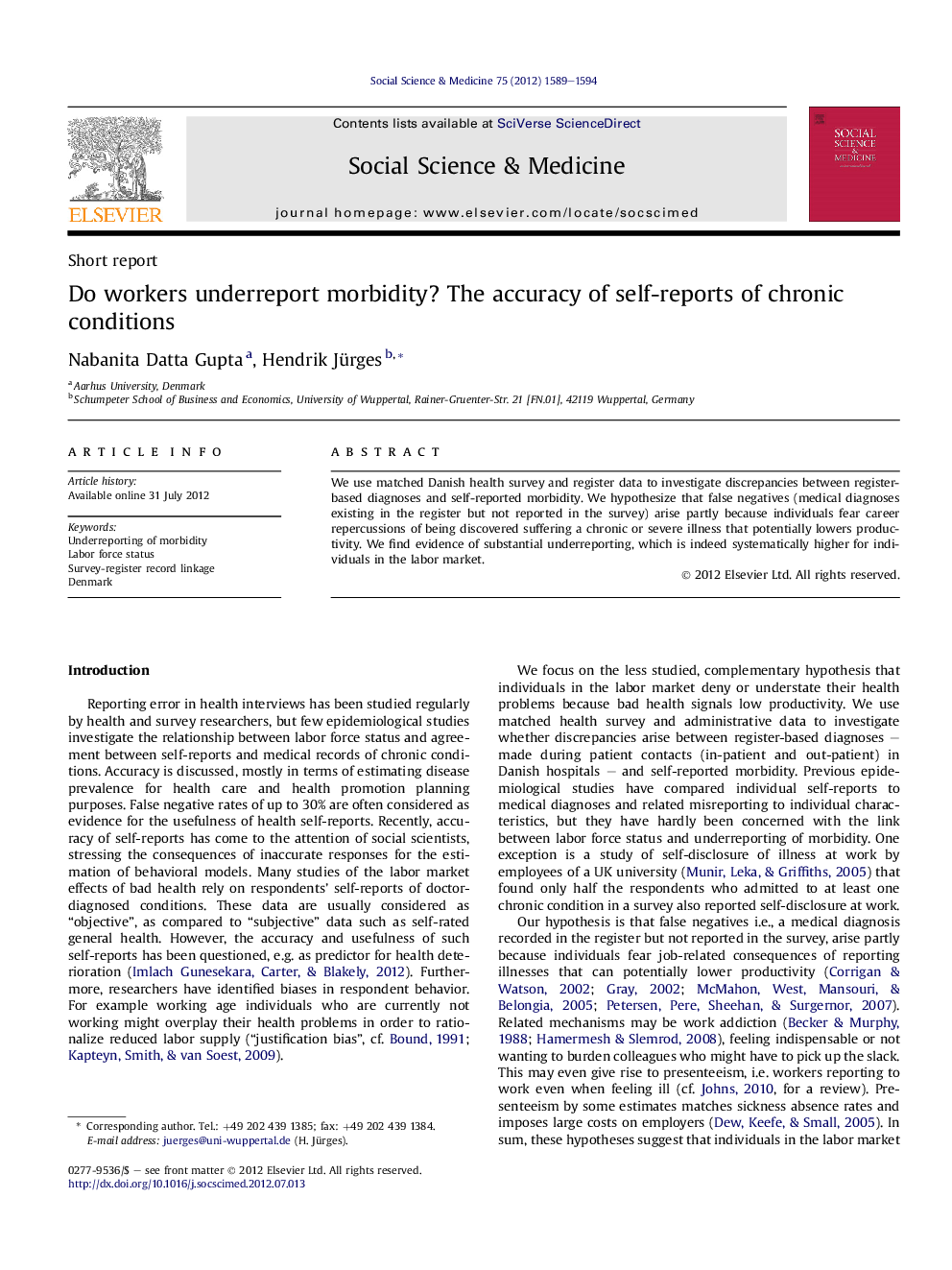| Article ID | Journal | Published Year | Pages | File Type |
|---|---|---|---|---|
| 952441 | Social Science & Medicine | 2012 | 6 Pages |
We use matched Danish health survey and register data to investigate discrepancies between register-based diagnoses and self-reported morbidity. We hypothesize that false negatives (medical diagnoses existing in the register but not reported in the survey) arise partly because individuals fear career repercussions of being discovered suffering a chronic or severe illness that potentially lowers productivity. We find evidence of substantial underreporting, which is indeed systematically higher for individuals in the labor market.
► We compare Danish survey self-reports of chronic conditions collected in 2000 with matched hospital register data from the years 1997 to 1999. ► Survey self-reports miss as much as 50 percent of all conditions treated in hospitals in the preceding three years. ► Underreporting rates are found to vary systematically with disease severity. ► Workers underreport conditions more than non-workers. ► Other socio-demographic background, including education, is not associated with underreporting rates.
